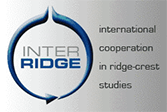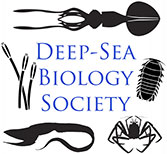Program
August 27 to September 1, 2017
Redfield Auditorium
» Download printed program (Please consider the environment before printing)
» Printed programs will be available at the meeting
| Sunday | August 27 |
|---|---|
| 18:00 | Opening Public Talk: Discovery of Deep-Sea Vents (Dr. Bob Ballard) (Lillie Auditorium, MBL) |
| 19:00 | Panel discussion: Implications for Life on Earth and Beyond (Lillie Auditorium, MBL) |
| 20:00 | Reception (Tent next to Redfield) |
| Monday | August 28 |
|---|---|
| 8:00 | Welcome |
| 8:15 | Introductory remarks |
| 8:30 | Plenary: Jim Childress: Early Adventures in Studying the Biology of Hydrothermal Vents |
| Community Structure and Dynamics (Session chair: Chuck Fisher) | |
| 9:15 | Rachel Boschen: A functional traits approach to assess differences among assemblages at hydrothermal vents in a marine protected area |
| 9:30 | Alanna Durkin: Community ecology of methane seeps along the Costa Rica margin |
| 9:45 | Sabine Gollner: Community dynamics at the 9°N East Pacific Rise after a volcanic eruption |
| 10:00 | Coffee |
| 10:30 | Ashley Grosche: The Microbial Biogeography of Deep-Sea Hydrothermal Vents: Mapping the Landscape of Active Microbial Communities Across Space, Time, and Fluid Dynamics |
| 10:45 | Thi Phuong Thao Ho: Geographical structure of endosymbiotic bacteria hosted by Bathymodiolus mussels at eastern Pacific hydrothermal vents |
| 11:00 | Abbie Chapman: Contributions of rare and common species to the functional diversity of basalt-hosted tubeworm bush communities from the Juan de Fuca Ridge |
| 11:15 | Dimitri Kalenitchenko: Ultra-rare microorganisms quickly transform deep-sea wood falls into chemosynthesis based ecosystems |
| 11:30 | Craig McClain: Size and Energy Influenced Niche Packing in Experimental Wood-Fall Communities |
| 11:45 | Arunima Sen: High Arctic cold seeps: visual and acoustic imagery reveal spatial heterogeneity in megafaunal communities and sediment geochemistry |
| 12:00 | Lunch |
| Chemosynthetic Habitats and Society (Invited Talks, Sponsored by the Deep Ocean Stewardship Initiative through a grant by the JM Kaplan Fund) (Session chair: Lisa Levin) | |
| 13:40 | Verena Tunnicliffe: X-traordinary: The Place of Hot Vents in a World of Humanity |
| 14:00 | Alison Swaddling: Overview of SMS Mining Interest in the Pacific |
| 14:20 | Erik Cordes: The Influence of Hydrocarbon Seeps on the Deep Sea in the Anthropocene |
| 14:40 | Michael Lodge: Perspectives from the International Seabed Authority |
| 15:00 | Coffee |
| Chemosynthetic Habitats and Society (Session chair: Lisa Levin) | |
| 15:30 | Diva Amon: Characterisation of deep-sea communities in an area designated for oil and natural-gas exploitation off Trinidad and Tobago |
| 15:45 | Stace Beaulieu: Applying an economic value framework to ecosystem services from deep-sea vents |
| 16:00 | Kristina Gjerde: Deep Ocean Stewardship Initiative (DOSI) progress in relation to deep-sea mining |
| 16:15 | Ana Hilario: Results from the MarMine cruise: megafauna assemblages from Mohn’s Treasure, a sediment covered massive sulphide deposit in the AMOR |
| 16:30 | Jennifer Le: Ecosystem services associated with methane seeps on the California continental margin |
| 17:30 | Poster session I w/ selected flash talks and Reception (Clark 507) |
| Chemosynthetic Habitats and Society | |
| Poster #1 | Verena Tunnicliffe: Regional diversity of the Mariana biogeographic region with a closer look at Alviniconcha hessleri, the original “hairy snail” (Moved from Biogeography due to scheduling conflict.) |
| 2 | Amber Cobley: Open oceans, open data: Biodiversity and policy in the deep-sea mining frontier |
| 4 | Nicholas Higgs: Introduction to the new deep-sea node of the Ocean Biogeographic Information System |
| 5 | Andrey Gebruk: Fauna of soft sediments and inactive hydrothermal sulfide deposits in the Russian Exploration Area on the Mid-Atlantic Ridge |
| Geochemistry and Biogeochemistry | |
| 6 | Hailey Conrad: Time series analysis of hydrothermal vent growth, flow coloration, and colony changes at Mushroom Vent in ASHES Field off the coast of Oregon |
| 7 | Jennifer Houghton: Microbial sulfur oxidation under high pressure conditions: A whiff of O2 |
| 8 | Benjamin Jelen: Revealing the genes responsible for sulfur respiration in Thermovibrio ammonificans |
| 9 | Midori Suzuki: Decay process of sea turtle-falls and their related ecosystems |
| Microbiology | |
| 10 | Dionysis Foustoukos: Lithotrophic nitrate reduction under high-pressure conditions at deep-sea vents |
| 11 | Diego Franco: Deep-sea sediment microbial communities at Hook Ridge hydrothermal vent in the Bransfield Strait, Northwestern Antarctic Peninsula |
| 12 | Jialin Hou: Comparative metagenomics reveals contrasting microbial communities inhabiting deep-sea chimneys at different stages of activity |
| 13 | Dimitri Kalenitchenko: High-resolution monitoring of deep-sea wood falls fill the gap between in situ conditions and microcosm experiments |
| 14 | Sushmita Patwardhan: Prokaryotic Diversity and Function at a Newly Discovered Shallow-water Gas Vent Site in the Tyrrhenian Sea |
| 15 | Adelaide Rhodes: Identifying potential microbial drivers of community succession and organization near deep sea hydrothermal vents |
| 16 | Kathleen Scott: Diversity in carbon dioxide concentrating mechanisms among gammaproteobacterial chemolithoautotrophs from the deep-sea hydrothermal vents and elsewhere |
| 17 | Camila Signori: Controls on Chemoautotrophic Production along Depth Profiles of the Water Column off the Northwestern Antarctic Peninsula |
| 18 | Francesco Smedile: Hydrogen oxidation coupled to sulfur reduction in deep-sea vent bacteria |
| 19 | Tresa Thomas: Chemosynthesis at the expense of thiosulfate in the mangrove clam Polymesoda erosa and the major bacterial contributors |
| 20 | Andrew Thurber: Methane cycling in the High Antarctic – Paradigms lost? |
| 21 | Kecen Zhou: Opening a single-cell genomic window on the ecological distribution and metabolic potential of uncultivated Sulfiphilic Bacteroidetes |
| Symbiosis | |
| 22 | Tjorven Hinzke: Physiological basis of the Riftia pachyptila symbiosis |
| 23 | Yi Lan: Interaction relationship between a chemosymbiotic Calyptogena clam and its vertically-transmitted endosymbiont revealed through meta-transcriptome sequencing |
| 24 | Juliana Leonard: Redox substrates and autotrophic pathways of Endoriftia Persephone, the gammaproteobacterial endosymbiont of vestimentiferan tubeworm Riftia pachyptila |
| 25 | Kaori Motoki: Compositional and functional shift in epibiotic bacterial community of hydrothermal vent |
| 26 | Jessica Panzarino: Switch-hitting carbon; An investigation of metabolic flexibility in hydrothermal vent tubeworm symbiosis |
| 27 | Bérénice Piquet: Apoptosis in the tissues of Bathymodiolus mussels under bathymetric pressurized/ versus unpressurized conditions: the possible role of apoptosis in regulating the branchial microbiota |
| 28 | Kamil Szafrański: Symbiont-related bacteria colonize plant substrates at hydrothermal vents and cold seeps |
| 29 | Yi Yang: The symbiotic relationship between a methane seep tubeworm and its symbiont as revealed through meta-transcriptomic analysis |
| Physiology and Adaptation | |
| 30 | Joan Bernhard: Gas-hydrate foraminifers: cellular adaptations and first association with putative methanotrophs |
| 31 | Paul Dando: Aquarium observations on the behaviour and nutrition of animals from the hydrothermal vents at the Menez Gwen site on the MAR |
| 32 | Julia Machon: AbyssBox: public exhibition of deep-sea hydrothermal fauna and associated research projects |
| 33 | Chong Chen: A first glimpse into the physiology and metabolism of Indian Ocean vent gastropod holobionts |
| 34 | Jin Sun: Understanding the deep-sea biominerlization tool-kit by comparative proteomic characterization of deep-sea Bathymodiolus and shallow-water Modiolus mussels |
| Tuesday | August 29 |
|---|---|
| 8:30 | Plenary: Jillian Petersen: Symbiosis and Holobiont Physiology: A New Understanding of the Roles and Functions of Chemosynthetic Symbionts in Bivalves |
| Habitat Structure and Dynamics (Session chair: Ashley Rowden) | |
| 9:00 | Robert Carney: Spatial distribution of chemosynthetic fauna determined by extensive AUV digital-image survey within a 15 km2 portion of the central graben of a salt-formed ridge in the Gulf of Mexico |
| 9:15 | Cherisse Du Preez: Remarkable decadal stability at Lau Basin hydrothermal vents (Southwest Pacific) |
| 9:30 | Lisa Levin: Oxygen Minimum Zones as Creators and Modifiers of Chemosynthetic Ecosystems |
| 9:45 | Ian MacDonald: Asphalt volcanoes revisited: Seafloor observations at natural hydrocarbon seeps in the southern Gulf of Mexico |
| 10:00 | Coffee |
| Symbiosis (Session chairs: Colleen Cavanaugh and Nicole Dubilier) | |
| 10:30 | Roxanne Beinart: Metabolic functioning of a ciliate-methanogen symbiosis from anoxic habitats |
| 10:45 | Christian Borowski: A novel and specific association of bathymodiolin mussels with Epsilonproteobacteria that is widespread at deep-sea hydrothermal vents and cold seeps |
| 11:00 | Corinna Breusing: Cryptic diversity and host-symbiont specificity in Pacific deep-sea tubeworms |
| 11:15 | Chong Chen: A new lease of life: Ontogentic shift in anatomy and ecology of a holobiont vent snail shown using synchrotron micro-CT |
| 11:30 | Sebastien Duperron: The flexible symbioses of deep-sea mussels: a not-so-straight story |
| 11:45 | François Lallier: Symbiosis under pressure: effects of isobaric recovery and in situ translocation on gene expression patterns in Bathymodiolus azoricus |
| 12:00 | Lunch (InterRidge meeting: future plans, code of conduct, new working groups) |
| 13:45 | Stephanie Markert: Marine thiotrophic symbioses - examined by physiological proteomics |
| 14:00 | Julia Polzin: Understanding mechanisms of host-microbe interactions in lucinid clams |
| 14:15 | Jin Sun: Adaptation of deep-sea mussels to chemosynthetic environments revealed by full genome analysis |
| 14:30 | Maxim Rubin-Blum: Invertebrate-microbe symbioses at asphalt volcanoes in the deep Gulf of Mexico |
| 14:45 | Shelbi Russell: Impacts of transmission mode on chemosynthetic symbiont genome evolution: A population genomic perspective |
| 15:00 | Coffee |
| Microbiology (Session chair: Fengping Wang | |
| 15:30 | Julie Huber: Spatially distinct, temporally stable chemolithoautotrophic microbial populations mediate biogeochemical cycling at and below the seafloor in venting fluids from Axial Seamount |
| 15:45 | Clara Chan: Using marine Fe mat meta-omics to gain insights into Zetaproteobacteria functional diversity, ecological interactions, and biogeochemical roles |
| 16:00 | Heather Olins: In situ mineral colonization samplers reveal patters in microbial community composition, structure, and succession |
| 16:15 | David Emerson: New insights into chemosynthetic Fe-oxidizing communities at hydrothermal vents |
| 16:30 | Florian Götz: Metaproteomics Reveals the Metabolic Pathways of Active Chemoautotrophic Communities at Crab Spa, a Diffuse-Flow Deep-Sea Vent site at 9ºN EPR |
| 16:45 | Costantino Vetriani: Common adaptive strategies in hydrothermal vent and pathogenic Epsilonproteobacteria revealed by comparative genomic and physiological analyses |
| 18:00 | Symposium Dinner at Sea Crest Beach Hotel |
| 22:00 |
| Wednesday | August 30 |
|---|---|
| All day excursions |
| Thursday | August 31 |
|---|---|
| 8:30 | Plenary: Marie Portail: Food Webs in Deep-Sea Chemosynthetic Ecosystems, the Missing Link between the Structure and Function of Biodiversity |
| Microbiology (Session chair: Costantino Vetriani) | |
| 9:00 | Yinzhao Wang: High abundance and diversity of anaerobic hydrocarbon metabolizing archaea in sediment of Guaymas Basin |
| 9:15 | James Holden: Hydrogen syntrophy-driven methanogenesis by hyperthermophiles in hot subsurface environments |
| 9:30 | Mohamed Jebbar: Thermococcales in the genomic era: diversity, physiology, applications and adaptation to deep sea hydrothermal vent conditions |
| 9:45 | Stefan Sievert: Connecting the Past with the Present: Identifying Chemosynthetically Active Microbes and Measuring Primary Productivity at Deep-Sea Hydrothermal Vents |
| 10:00 | Coffee |
| 10:30 | Holly Bik: Diversity patterns of nematode microbiomes around a Pacific whale fall site (off-coast California) |
| 10:45 | Sheryl Murdock: Hydrothermal Vent Protists: The Missing Piece to the Puzzle |
| Chemosynthetic Energy Transfer (Session chair: Nadine Le Bris) | |
| 11:00 | Bérengère Husson: Integrating knowledge and getting insights on chemosynthetic-based ecosystems: a modelling approach |
| 11:15 | Peter Girguis: Mantle to microbe to mollusc and more: The role of chemosynthetic symbioses in matter and energy flux in chemosynthetic ecosystems |
| 11:30 | Nicholas Higgs: A chemosynthesis based food chain supports commercial lobster fisheries |
| 11:45 | Hidetaka Nomaki: Nutrition sources of deep-sea hydrothermal vent meio- and macrofauna revealed by natural-abundance radiocarbon and stable carbon and nitrogen isotope ratios |
| 12:00 | Lunch |
| 13:45 | Sarah Seabrook: Feast in the deep: The use of chemosynthetic nutrients by the Tanner crab |
| 14:00 | Serban M. Sarbu: Chemosynthesis based cave ecosystems at liquid:gas and gas:gas redox interfaces |
| Geochemistry and Biogeochemistry (Session chair: Nadine Le Bris) | |
| 14:15 | David Brankovits: Cryptic Chemosynthetic Pathways Support an Ecosystem within Subterranean Karst Estuaries |
| 14:30 | Solveig Bühring: The shallow submarine hot vent system off Milos (Greece) – a natural laboratory to study hydrothermal geomicrobiology |
| 14:45 | Lucie Pastor: When Organic-Rich Turbidites Reach 5000 m: “Cold-Seep Like” Life in the Congo Deep-Sea Fan |
| 15:00 | Coffee |
| Evolution (including evolutionary history) (Session chair: Cris Little) | |
| 15:30 | Crispin Little: A 3.77 (or possibly 4.28) billion year history of microbial communities associated with marine hydrothermal vents |
| 15:45 | Steffen Kiel: Clams ’n’ Trends ’n’ Marine Sulfate Concentrations: Ocean Chemistry and Macroevolution through Earth History |
| 16:00 | Kazutaka Amano: Paleocene wood-fall communities from eastern Hokkaido, northern Japan |
| 16:15 | Robert Gwyn Jenkins: Chemosynthetic community on Cretaceous marine reptile falls |
| 16:30 | Andrzej Kaim: Early Mesozoic seeps and the advent of modern seep faunas |
| 16:45 | Mari Heggernes Eilertsen: Do ampharetids take sedimented steps from vents to seeps? Phylogeny and habitat-use of Ampharetidae (Annelida, Terebelliformia) in chemosynthesis-based ecosystems |
| 17:00 | Magdalena Georgieva: Identification of fossil worm tubes from Phanerozoic hydrothermal vents and cold seeps |
| 17:45 | Poster session II w/ selected flash talks and Reception (Clark 507) |
| Community Structure and Dynamics | |
| Poster #35 | Joan Manel Alfaro-Lucas: The role of environmental filtering on community structure in the vicinity of hydrothermal vents in the Lucky Strike vent field (Mid-Atlantic Ridge) |
| 36 | Emmelie Astrom: Methane release at underwater mounds in the Barents Sea (76° N) and its impact on Arctic macro-benthic faunal communities |
| 37 | Jill Bourque: Drivers of benthic community structure at hydrocarbon seep communities along the western Atlantic margin |
| 38 | Fabio Cabrera De Leo: 8 years of continuous monitoring of NE Pacific cold-seeps and hydrothermal vents using the NEPTUNE cabled observatory |
| 39 | Adriana Gaytan-Caballero: Preliminary results on biodiversity of Campeche knolls, Mexico: high connectivity of species |
| 40 | Yann Lelièvre: Astronomical and Atmospheric Impacts on Deep-Sea Hydrothermal Vent Invertebrates |
| 41 | Susan Mills: Community matters: Post-eruption settlement at vent sites with and without a surviving animal community |
| 42 | Phillip Turner: Contributions of rare and abundant species to the functional diversity of deep-sea hydrothermal vent communities |
| 43 | Jamie Wagner: Extensive microbial mats discovered at seep in oxygen minimum zone off the CA coast by Redondo Knoll |
| 44 | Emily Young: Biodiversity, Connectivity & Ecosystem Function of Deep-Sea Organic-Rich Whale-Bone and Wood-Fall Habitats: A Comparative Experimental Approach |
| Biogeography | |
| 46 | Abbie Chapman: sFDvent: Building the first global functional trait database for hydrothermal vent species |
| 47 | Steffen Kiel: Biogeography of the vent and seep fauna - a network approach |
| 48 | Won-Gi Min: Comparison of faunal assemblages by the hydrothermal chimney type at southern Lau back-arc basin revealed by high-resolution video image |
| 49 | Clifton Nunnally: Traits associated with of species associated with deep-sea wood falls and niche width expansion shared between chemosynthetic communities |
| 50 | Olivia Pereira: Occurrence of Alvinocaris muricola in whale bones from the SW Atlantic: molecular proximity with the Atlantic Equatorial Belt population |
| 52 | Dongsheng Zhang: Phylogeny of Ophrytrocha (Polychaeta, Dorvilleidae) from hydrothermal vents with descriptions of six new species |
| 53 | Yadong Zhou: Diversity and biogeography of vent fauna at hydrothermal vents from Southwest Indian Ocean Ridge |
| Evolution (including evolutionary history) | |
| 54 | Suzanne Dufour: Ediacaran fossils suggest a role for chemosynthesis in early animal evolution |
| 55 | Suzanne Dufour: Farmers and ranchers: how thyasirid bivalves associate with chemosynthetic bacteria |
| 56 | Magdalena Georgieva: Microbial-tubeworm associations in a 440-million-year-old hydrothermal vent community |
| 57 | Krzysztof Hryniewicz: Thyasirid bivalves from ancient cold seeps and their evolution |
| 58 | Didier Jollivet: Protected polymorphism of phosphoglucomutase in the Pompeii worm and its variant adaptability is only governed by two QE linked mutations |
| 59 | Genki Kobayashi: Evolutionary shift from infaunal to epifaunal lifestyle may have enabled bamboo worms (Annelida: Maldanidae) to invade chemosynthesis-based ecosystems |
| 60 | Elena Krylova: Phylogenetic radiation of chemosymbiotic vesicomyids: trends, adaptations, timing |
| 61 | Crispin Little: Paleogene and Neogene Caribbean and South American seep communities |
| 62 | Yuichi Nakajima: Stepping-stone larval dispersal contributes to genetic diversity and connectivity among populations of a hydrothermal vent limpet in the Okinawa Trough |
| Life History | |
| 63 | Shawn Arellano: Larval development and feeding in two species of an abundant snail at hydrothermal vents on the Mariana Arc and Back-Arc system |
| 64 | Caitlin Plowman: Reproductive patterns of cold-seep mussels in the western Atlantic and Gulf of Mexico: effects of depth and detritus |
| 65 | Andrey Gebruk: Bottom community associated with shallow-water methane seep in the Laptev Sea |
| 66 | Adrian Glover: Three new Ophryotrocha species (Polychaeta: Dorvilleidae) from hydrothermal vent and whale-fall habitats in the Southern Ocean |
| Trophic Ecology | |
| 67 | Breea Govenar: Identifying invertebrate prey of hydrothermal vent gastropods |
| 68 | Se-Jong Ju: Understanding the energy flow of hydrothermal vent ecosystem in North Fiji Basin using stable isotope ratios and lipid biomarkers |
| Friday | September 1 |
|---|---|
| 8:30 | Plenary: Satoshi Mitarai: Quantifying Dispersal from Hydrothermal Vent Fields in the Western Pacific Ocean |
| Evolution (including evolutionary history) (Session chair: Cris Little) | |
| 9:00 | Yong-Jin Won: Population subdivision of hydrothermal vent polychaete Alvinella pompejana across equatorial and Easter Microplate boundaries |
| 9:15 | Shannon Johnson: Evolution of Oasisia, an unusual polytypic vestimentiferan |
| 9:30 | Yuanning Li: Comparative genomics reveal symbiont-host evolution of deep-sea tubeworms |
| 9:45 | Rob Young: Ubiquitous Episodic Selection on Protein Coding Genes in Vesicomyid Symbiont Genomes |
| 10:00 | Coffee |
| Biogeography (Session chairs: Hiromi Watanabe and Lauren Mullineaux) | |
| 10:30 | Ana Colaço: Key species dispersal and population connectivity at different spatial scales and under different disturbance scenarios at fragmented habitats of the MAR |
| 10:45 | Austin Phillips: Tools for Evaluating the Importance of Habitat Patches in Hydrothermal Vent Metapopulations |
| 11:00 | Adrian Glover: Biogeography of annelids from newly-explored Caribbean, Indian Ocean and Southern Ocean hydrothermal vents |
| 11:15 | Won-Kyung Lee: Biodiversity and spatial distribution of vent fauna in the hydrothermal fields on the spreading axis of North Fiji Basin based on ROV visual survey |
| 11:30 | Ashley Rowden: Biogeography of hydrothermal vent communities of western Pacific Ocean back-arc basins and volcanoes |
| 11:45 | Hiromi Watanabe: Dispersal and population maintenance of two hydrothermal vent shrimps, Alvinocaris longirostris and Shinkaicaris leurokolos |
| 12:00 | Craig Young: Distributions of cold-seep bivalve larvae in the Western North Atlantic, Caribbean, and Gulf of Mexico |
| 12:15 | Lunch |
| 14:00 | Panel: Future Research Directions and Societal Relevance of Chemosynthetic-Based Ecosystems |
| 15:30 |





